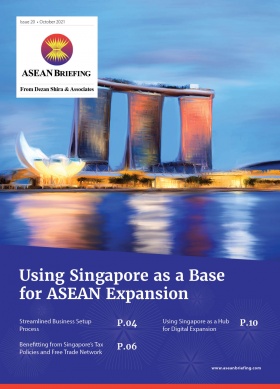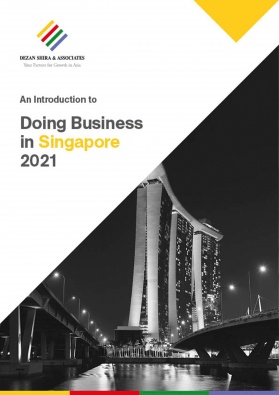Singapore Makes Amendments to Company Laws to Improve Compliance
On January 10, 2022, Singapore’s Parliament approved amendments to two company laws (the Companies Act and the Limited Liability Partnerships Act) through the Corporate Registers (Miscellaneous Amendments) Act.
The aim is to improve the compliance and transparency of companies and limited liability partnerships (LLPs) in Singapore and to make it difficult for illicit actors to engage in actions that abuse the financial system such as fraud and money laundering.
The amendments are also in line with the international standards set by the Financial Action Task Force (FATF), an intergovernmental organization established on the initiative of the G7 to develop initiatives and policies that combat money laundering and other threats to the international financial system.
Register of nominee shareholders in Singapore
Under the act, companies in Singapore will be required to maintain a register of nominee shareholders.
Currently, a shareholder can hold shares on behalf of another person (the nominator), and this nominee is not required to identify themselves. With the nominee shareholder typically acting on instructions from the nominator, the lack of transparency on the identity of nominators has been an area of international concern in the fight against money laundering and other types of financial abuse.
Both local and international companies registered in Singapore must now keep a non-public register of the nominee shareholders and the nominators. This register must be updated within seven days of being informed by the nominee.
Identification of individuals as registerable controllers
Another amendment under the act is the requirement for local and foreign companies and LLPs to identify registrable controllers.
Registrable controllers are individuals such as chief executive officers, directors, partners, or even entities that exercise executive control over the daily affairs of the company or LLP. However, there was no requirement for the company or LLP to maintain a register if they do (or are unable to identify) such individuals or entities.
The company or LLP must now identify all individuals or entities that have executive control and record them as the registerable controllers of the company or LLP. The amendments are aimed at improving the transparency of companies and LLPs that are established in Singapore.
The non-compliance with these requirements is punishable with a fine of up to S$5,000 (US$3,697).
What is the timeframe for companies to update their register of members?
Foreign companies must update their register of members within 30 after any change in the particulars within the register.
A Singapore company must update its register of members within seven days after the company is informed that: (i) a director has ceased to be a nominee; or (ii) there is a change in the particulars of a person for whom the director is a nominee.
Further Reading
- Why Use Singapore as a Base for ASEAN Expansion
- Indonesia Increases Minimum Wage for 2022
- Malaysia Imposes Licensing Requirements for Cloud Service Providers
About Us
ASEAN Briefing is produced by Dezan Shira & Associates. The firm assists foreign investors throughout Asia and maintains offices throughout ASEAN, including in Singapore, Hanoi, Ho Chi Minh City, and Da Nang in Vietnam, Munich, and Esen in Germany, Boston, and Salt Lake City in the United States, Milan, Conegliano, and Udine in Italy, in addition to Jakarta, and Batam in Indonesia. We also have partner firms in Malaysia, Bangladesh, the Philippines, and Thailand as well as our practices in China and India. Please contact us at asia@dezshira.com or visit our website at www.dezshira.com.







